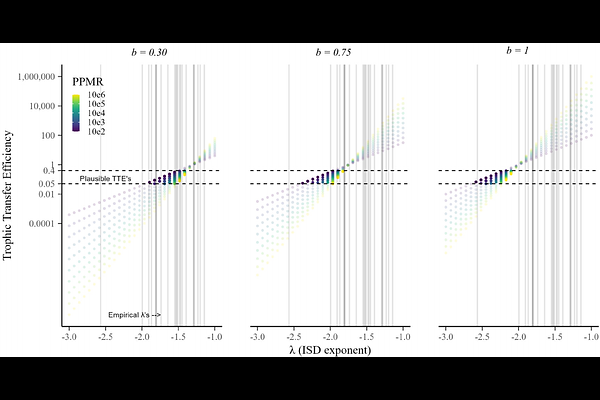Temperature and predation alter metabolic scaling without changing size-based structure community in freshwater macroinvertebrates

Temperature and predation alter metabolic scaling without changing size-based structure community in freshwater macroinvertebrates
Gjoni, V.; Glazier, D.; Pomeranz, J.; Junker, J.; Smith, A.; Woelber, J.; Reynolds, S.; Welch, T.; Wesner, J.
AbstractBody size is a key trait that influences ecological processes such as metabolism, abundance, and species interactions. While the metabolic theory of ecology (MTE) proposes a universal scaling of metabolic rate with body mass, recent evidence shows that this relationship is not fixed. Environmental factors like temperature and predation can alter the metabolic scaling exponent, potentially reshaping size distribution. However, most research has examined these patterns within individual species, leaving open questions about how environmental drivers affect scaling at the community level. To address this, we performed a mesocosm experiment manipulating both temperature and fish predator presence in freshwater macroinvertebrate communities. We found that metabolic scaling at the community level is highly responsive to environmental context: warming steepened the scaling exponent in predator-free tanks but flattened it when predators were present. This suggests that larger individuals reduce their baseline metabolic rates under predation risk, especially at higher temperatures. Interestingly, the slope of the community size distribution remained stable across treatments, indicating that shifts in metabolic scaling occurred independently of changes in size structure. Together, these findings highlight the environmental sensitivity of metabolic scaling and suggest that links between metabolism scaling and size distribution may be more complex than MTE predicts.